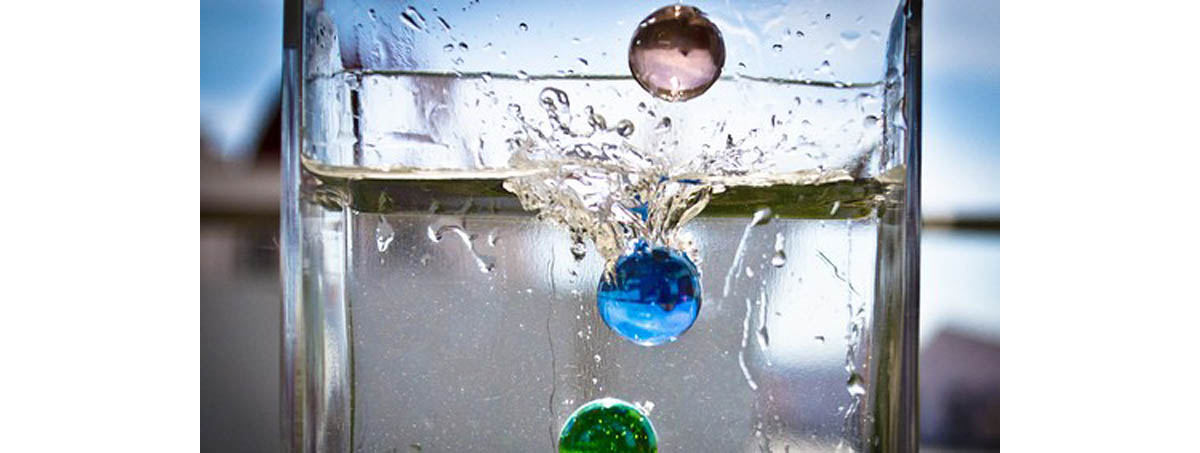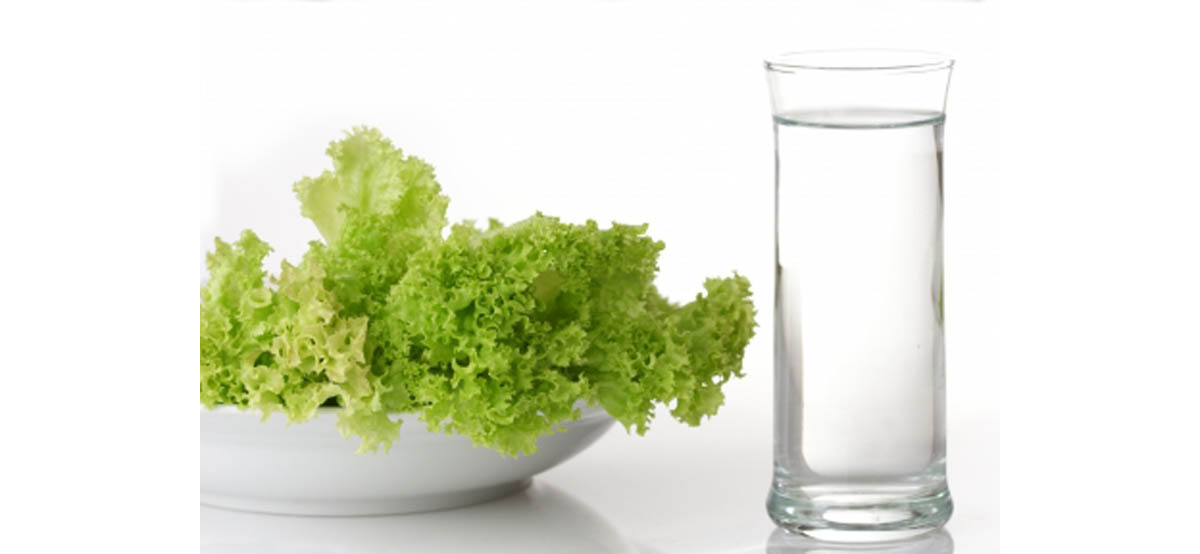It is fat-free, has zero calories, is always ‘on tap’ (literally) and is essential to life. We’re constantly told to drink more of it, but is it really so good for our health?
Water makes up around 60 percent of our body weight and is vital for essential functions such as maintaining blood pressure, eliminating waste products and preventing the delicate mucous membranes in our nose, mouth and lungs from drying out. But apart from the essential stuff, what else can water do for us?
Here's what you haven't considered about water, but should.

Heart health
Research has found those people who drank five glasses of water a day were less likely to suffer from potentially fatal heart disease, compared with those drinking two glasses. (Just imagine what eight glasses could do.)
Digestive health
Water that is absorbed by dietary fiber as it passes through the digestive system bulks out stools to make them softer and easier to pass. (Many laxatives work on exactly this principle by drawing water into the stool). So not drinking enough water is likely to cause constipation.
Prevents cancer
A study in conducted by investigating men found those who consistently drank 10.5 glasses of water a day were 24 percent less likely to develop bladder cancer, while another study showed the risk of certain types of bladder cancer to be halved in men who drank 11 glasses of water a day. Drinking large quantities of water may have the effect of quickly washing cancer-causing agents out of the body, so they cannot accumulate.
Women have also been shown to be at lower risk of cancers that affect the bladder and kidneys the more fluid (of all types) they consume every day, and guess what? Water straight from the tap was found to have the strongest effect.
Other research showed a greater reduction in men: 92.4 percent for rectal cancer and 42 percent for colorectal cancer. Water increases the rate at which stools pass though the bowel, reducing contact time between cancer-causing agents and the bowel lining. Makes sense, right?
The risk of breast cancer is also affected by drinking water — a study showed that the risk of developing breast cancer was reduced by 79 percent in post-menopausal women and by 33 percent in premenopausal women if they drank plenty of water. This demonstrates the importance of water to normal functioning – at low levels cells are less able to filter out toxins.
Avoid diabetes by drinking water
Not drinking enough fluid has also been found to increase the risk of developing high blood sugar levels, which can lead to diabetes. In a study, those people who drank less than half a liter a day were more likely to develop high blood sugar than those drinking a liter or more. The link here is a hormone (vasopressin or ADH) secreted by the brain when fluid levels are low. It leads the kidneys to retain water, but causes the liver to release glucose into the blood. So the more vasopressin released due to dehydration, the higher blood sugar levels become.
Water Has The Power To Affect How You Look And Feel Too
Weight loss
Drinking plenty of water helps you feel full, making you less likely to indulge in calorie-laden snacks between meals. In addition,

Energy levels
Being dehydrated even as little (defined as 1-2% less water than needed) has been shown to reduce energy levels. Drinking water instead of sugary drinks will also prevent the energy slump that inevitably follows a high sugar load.
Headache
Many people experience headaches as a result of dehydration, although the precise mechanism behind this ill is not known. It may be that the balance of substances in the blood is affected by a drop in the amount of water in the bloodstream, and that the brain is very sensitive to these changes.
Better for teeth and gums
Drinking water and swishing it around the mouth will help to dislodge food and plaque around the teeth, which lead to tooth decay and gum disease. Replacing sugary drinks with water will also be better for tooth and gum health. If your dental health is important to you, make water your primary drink.
Fitness and tone
You are better able to exercise when not dehydrated, as lack of fluid can lead to muscle weakness and fatigue.
Skin quality
So it’s not surprising that drinking plenty of water has long been associated with a clear skin.
How much and how often to drink
There is no ready-made answer to the question of how much water we should drink, although experts seem to agree that it is better to drink small amounts regularly, rather than large quantities infrequently. Many recommendations regarding how much to drink ignore the differences body size and weight will make. They also do not take into account that in high temperatures and when exercising we all lose fluid through sweat, so have more need to replace it. We obtain water from food as well as drinks other than water, but ironically some drinks can lead to a loss of water. Caffeine and alcohol cause more vasopressin to be released, so we lose more water by producing lots of dilute urine.
Health experts advise drinking more water before, during and after exercise to maintain hydration throughout. The message is don’t wait until you’re thirsty – that’s way too late!
- Chan J, Knutsen SF, Blix GG, Lee JW, Fraser GE. Water, Other Fluids, and Fatal Coronary Heart Disease.The Adventist Health Study. American Journal of Epidemiology (2002) 155 (9) 827-833
- Rousel R et al, for the D.E.S.I.R study group. Low Water Intake and Risk for New-Onset Hyperglycemia. Diabetes Care, 2011, 34, 2551–2554
- Photo courtesy of javmorcas on Flickr: www.flickr.com/photos/javmorcas/6220432042/
- www.water.org.uk

